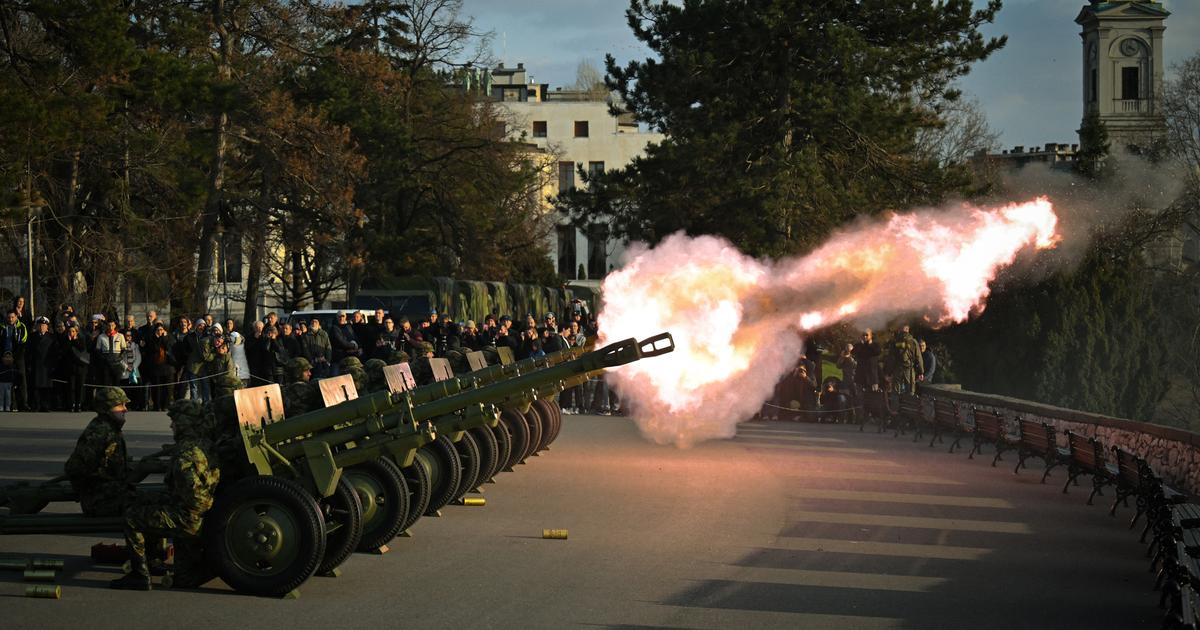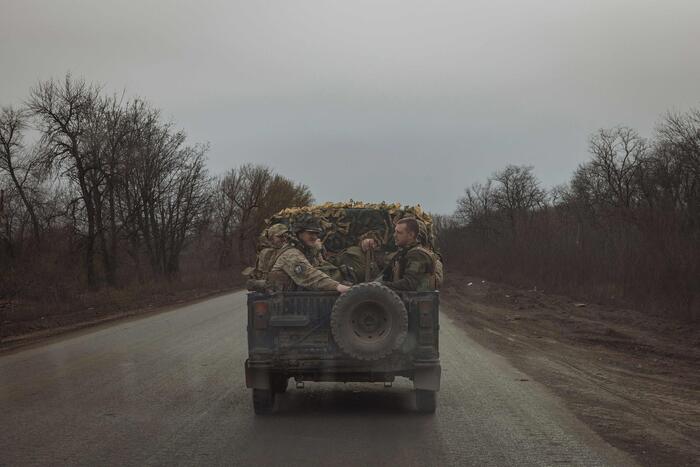The prospects for a diplomatic solution to the crisis between Russia and Ukraine are dim. Just one day after NATO and Moscow met in a “difficult and open” meeting, the disagreement – verbal, for now – has increased a lot. Vladimir Putin's regime is already speaking of a "stalemate" in the process, in the words of Deputy Foreign Minister Sergey Riabkov, who sees no reason to continue dialogue with the West. The Kremlin assures that it will do everything necessary to "eliminate" what it considers to be "unacceptable threats to its national security." On the other side, the words are no less harsh: "The risk of war in the region is now greater than at any other time in the last 30 years," warned Zbigniew Rau, the new president of the Organization for Security and Cooperation in Europe (OSCE).
This Thursday the last meeting of this week was held, which has had an agenda full of meetings to try to begin to reduce the tension between Russia, on the one hand, and Ukraine and the West, on the other. It was the third, and this time the forum was the OSCE, the only one in which Ukraine is represented. There have come the statements of Rau, also Minister of Foreign Affairs of Poland, one of the countries that most suspiciously looks at every move by Moscow. But he has not been the only one who has spoken, so has Russia's representative in the organization, Aleksandr Lukashevich: "If Moscow does not hear a constructive response to the proposals it has made in a reasonable time, and if the aggressive behavior towards Russia continuesAll necessary measures will be taken to ensure a strategic balance and eliminate unacceptable threats to national security.”
The military option is on the table. On December 21, President Vladimir Putin threatened "military-technical retaliatory measures" against any "hostile" NATO initiative. Among these alleged threats is the deployment of weapons in Ukraine because, in Putin's opinion, this would push Kiev to try to retake Crimea ―which Russia annexed in a referendum considered illegal by the international community in 2014― or the Donbas region, where separatist troops supported by the Kremlin and the Ukrainian Army have been facing each other for eight years.
This day, Deputy Minister Ryabkov underlined this idea in an interview on the RTVI channel.
"Military specialists, as has been officially said, continually offer variants to the president in case the situation worsens," the senior official stressed.
“This is a difficult issue, it should not be agitated in the public space because the situation is already unstable;
diplomacy must be given a chance,” added Ryabkov, who led the Russian delegation to bilateral negotiations with the United States in Geneva on Monday.
allied strategy
But if that time comes, Moscow knows that it will have to face “enormous sanctions”, as Western authorities tend to say with certain grandiloquent rhetoric, in the economic, political and diplomatic fields. Those planned punishments for when the case arrives have not been disclosed as part of the allied strategy. However, this Thursday the High Representative for Foreign Policy of the European Union, Josep Borrell, has suggested some of the things that would be on the table. “Certainly there is a link between the military situation in Ukraine and this infrastructure [the Nord Stream 2 pipeline]. It's obvious”, the Spanish politician replied when asked specifically about the subject.
The start-up of this gas pipeline, which links Russia and Germany through the Baltic Sea without crossing another country, is now suspended at the request of the German regulator. This has been recalled by Borrell, who has warned that this is a "private infrastructure" and that "it does not contribute to Europe's energy autonomy", which is why the Commission has not designated it as "priority", despite the clear commitment German for this gas pipeline and natural gas from Russia.
It will not be easy to redirect the negotiations between all the actors. The starting conditions proposed by Moscow are something more than a maximum position to gradually reduce the demands during the negotiation. In fact, European diplomatic sources see them as an excuse that allows them to justify leaving the table. Russia demands that NATO cease joining new members and return to its 1997 borders, just before the inclusion of Poland, the Baltic states and other Eastern European nations. The Atlantic Alliance and the Kremlin signed an agreement that year for the peaceful expansion of NATO. This, both for the Atlantic Alliance and for the other actors, is unacceptable because it means curtailing the sovereignty of those countries that want to join the Western military organization and, furthermore,return to the logic of spheres of influence and satellite states that prevailed in the Cold War.
Zbigniew Rau, this Thursday in Vienna.
ALEX HALADA (AFP)
In any case, after this intense week of meetings, the path of dialogue seems to have been exhausted, according to Ryabkov.
"The United States and its allies tell us 'no' in key elements of the texts, and where they say 'yes, let's discuss more' are secondary stories to NATO not expanding," said Ryabkov, who does not see a reason for more meetings. : "Without clarifying if there is any flexibility on the other side to work on serious issues, I see no reason to sit down in the next few days, to meet and start again with these same discussions."
Those "side stories" he refers to were detailed on Wednesday by NATO Secretary General Jens Stoltenberg when he spoke of "transparency in movements" and discussing stockpiles.
The specter of an open war in Ukraine was raised again in November, when US intelligence detected the deployment of more than 110,000 Russian soldiers, armor and artillery around its borders. "Regarding movements in our territory, what routes the Americans recommend us to use, I don't think it is necessary to explain that these demands are unacceptable," Russian Foreign Minister Sergey Lavrov said on the same day. The head of Russian diplomacy responded that the negotiations have gone "as we expected" and called the Western party "arrogant" and "without commitment".
The Ukrainian Foreign Minister, Dmitro Kuleba, took stock of this week's negotiations and highlighted the "unbreakable unity" shown by the United States, NATO and the European Union, "which destroyed Russia's hopes of making pacts with Washington "outside the interested parties." The head of Ukrainian diplomacy also stressed that Kiev hopes to "further develop its ties with NATO" and set the next summit in Madrid in June in red, which "must reinforce the alliance's commitment to defend its open-door policy ”. Borrell also referred to this unit when he highlighted the more than 100 contacts through different channels that have taken place between the United States and its allies since November to exchange information on the situation and their points of view on this crisis.
Crucial moment
"Now comes the most crucial moment," said Kuleba, who warned that Russia continues to strengthen itself along its borders and in the separatist region of Donbas.
“[The West] must spare no effort to ensure that Russia de-escalates.
The consequences of a new Russian invasion of Ukraine would be devastating for Europe," said the minister, who has asked his allies not only to prepare a package of economic sanctions and political measures, but also to send defensive war material to his armed forces. .
Precisely this Wednesday, another Russian Deputy Foreign Minister Aleksandr Grushkó pointed out after his meeting with NATO members in Brussels that the condition for the Russian military de-escalation around Ukraine is that the Alliance withdraw its instructors from the country and stop sending armament.
Despite the lack of dialogue, the Russian Foreign Ministry has announced that German Foreign Minister Annalena Baerbock will meet with Lavrov in Moscow next Tuesday.
One of the issues they will address will be the Nord Stream 2 gas pipeline, completed at the end of December, although it is still inoperative as it has not been certified by Brussels.
Follow all the international information on
and
, or in
our weekly newsletter
.








